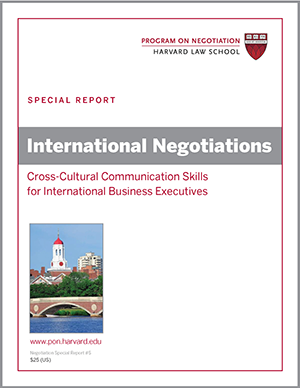
In one of the top examples of international negotiation back in April 2013, Apple CEO Timothy D. Cook made the unusual move of apologizing to Chinese customers for his company’s warranty policy and promised to make amends, the New York Times reports.
Apologies in China
On March 15, 2013, International Consumers’ Day in China, the nation’s largest state-run television network criticized Apple for giving iPhone customers in China a short warranty and for charging consumers to replace faulty back covers on iPhones. Apple products are immensely popular in China.
Other state media outlets joined in the Apple bashing, and the public outcry grew. Some speculated that the complaints were a calculated campaign by the Chinese governments to boost Apple’s Chinese competitors.
Apple initially failed to respond to the accusations against its warranty policies. Then, in an open letter released in Chinese, Cook admitted that his company’s lack of communication had led to the perception that “Apple is arrogant and doesn’t care or value consumers’ feedback.” The letter continued, “We sincerely apologize for any concern or misunderstanding this has brought to the customers.”
In experiments, Professor William W. Maddux of INSEAD and his colleagues studied reactions to apologies in the United States and Japan.
The results suggest that in collectivist cultures such as Japan and China, an apology can be an especially effective means of alleviating conflict in international negotiation, regardless of whether the apologizer is to blame (see also, Conflict and Negotiation Case Study: The Importance of Sincerity).
In general, carefully delivered apologies can restore dignity and trust in a way that sheer financial compensation cannot (see also, Difficult Negotiation Going Nowhere? Consider an Apology).
Do you have experience in international negotiation? What can you add that we may have missed?
Related Article: Dispute Resolution in China – Apple Apologizes for Warranty Policies – What lead to the world’s premier technology company, Apple, apologizing to its customers in the People’s Republic of China.




